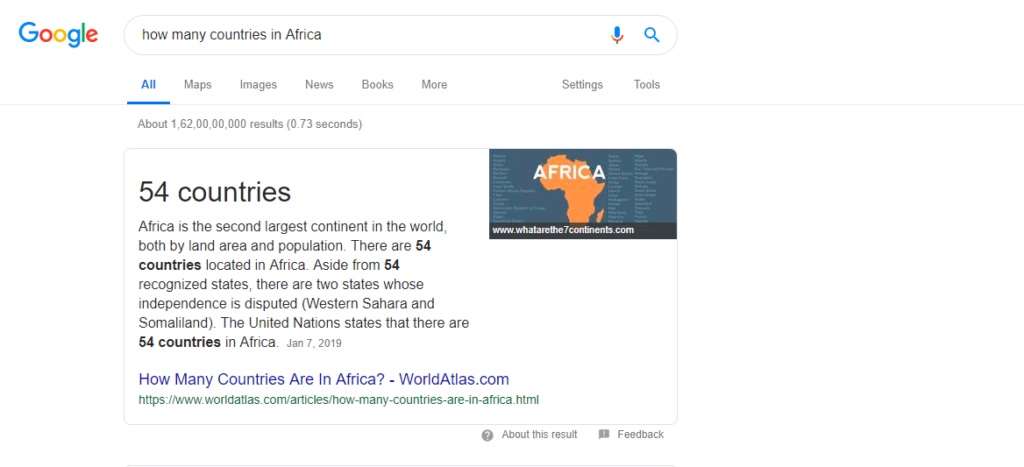Blogs

With the growth of Voice Search, it is imperative to include the latest trends in your SEO best practices.
The Rapid Growth of Voice Search
Voice Search is no more technology for the future. It is technology for the present. Just in 2016, 55% of teens and 41% of adults were using voice search more than once a day.
Voice Search now constitutes 20% of all mobile searches. In the eight years from 2008 to 2016, Voice Search grew 35x as technologies like Alexa, Google Voice Search, Siri, and Echo have continued to make massive impacts. Perhaps, it is no wonder then that the expectation is that 50% of all searches will be voice search by 2020.
(Perhaps we can include a graph of the growth of voice search over the years from a respectable web magazine or site in this space)

What are the Reasons for the Growth of Voice Search?
Many reasons can be adduced for this tremendous increase in the popularity of voice search. One is that voice search is faster than typing. A report showed that with voice search, you get 110-150 words per minute while you get 38-40 words per minute typing. Voice search is 3.7x faster than typing. In the same 2016 report, 78% of teens, and 63% of adults love voice search because it is faster.
It is not just faster but more convenient. 56% of respondents in a survey were found to enjoy voice search because it eliminates the need for typing. Talking to your device is a simpler and more efficient way to get results as compared to typing, especially for long keywords.
Another reason is the adaptation of voice search to mobile. 58% of voice search users are on mobile devices. Voice search constitute 20% of all mobile searches. Since mobile technology itself is growing, it only makes sense that voice search, closely tied to mobile technology, increases too.
How is Voice Search Changing Digital Marketing?
The Voice Search revolution is creating huge impacts on digital marketing. This includes those in the E-commerce world as well as those in the services industry.
The primary way this impact occurs is through Search Engine Optimization. Voice search like Google Voice and Amazon’s Alexa are changing the very nature of how people search for information. We are gradually moving towards a digital marketing landscape where conversations with machines will drive search.
The Shift to Longer Keywords
With Voice search, keywords are now longer and more conversational. When people search using voice assistants, they tend to include more words in the search than when typing. Voice searches are more targeted and comprehensive.
Similarly, voice searches are more conversational with the use of natural language. Instead of searching for strings of words that don’t form a complete meaning, people now use more complete phrases and questions to ask computers for specific (or at least more precise) results.
Instead of searching for “SEO for E-commerce,” someone using voice search will more likely search for, “How can I use Search Engine Optimization to grow my E-commerce.” Or take another example. A voice search will more likely be, “where can I buy shoes in California” rather than “shoes in California.” Voice Search is changing the very nature of keywords. It is becoming more conversational and natural.
The Change in the Display of Results
The introduction of Knowledge Graphs and Featured snippets by Google is itself changing the way Google SERPS display results. It is not so surprising then that there was a 37% drop in organic clicks on the SERP. For example, for the search, “What is Alexa,” here is the Google SERP.

The snippet on the right might have given me just the information I need and render clicking through any of the links on the SERP needless. It is the same with voice search. For the voice search, “how many countries in Africa?” here is the result: The answer is already “in my face” and clicking through any of the links is mostly needless.

Voice Search and Your Keyword Research
How then do you incorporate voice search into your Keyword Research?
Use Long-tail Keywords
With Voice searches, people are using more extended keywords. Therefore, it is essential to make use of long-tail keywords for your content.
These long-tail keywords should be scattered in different places in the content. So, instead of just targeting “SEO for E-commerce,” you can focus on long-tail keywords like “useful SEO strategies for e-commerce stores” or “how can I make use of SEO for my e-commerce store.”
Use More Question Keywords
Most of the queries carried out in voice search are in question format. That is why question keywords are growing by 61% every year.
Because Keywords with voice search are natural and conversational, they tend to include question keywords more often. As a result, it is essential to include question keywords as part of your Keyword Research.
Keywords like, “where can I buy diving gear in Texas,” “how can I increase my organic traffic,” “who are the influencers in social media marketing,” what is the most useful SEO strategy for E-commerce,” are essential in a world of voice search.
Use Natural Language Keywords
Look for keywords that are conversational and complete a thought. Focus on natural language and not just plain keywords. Instead of “download stock photos,” you might consider, “best places to download stock photos.”
Optimizing content for Voice Search
But it does not stop at the level of keywords research. How do we then use our new set of keywords to optimize our content for Search Engines like Google Voice, Alexa among others?
Write in Natural Language
Use the natural language keywords that you have discovered in your content. More so, use them naturally. Learn to substitute robotic language with a more expressive and natural tone.
Focus on writing for the people and not just the search engine. Write with your audience in mind. User-generated content and content that understands user intent is the future of content marketing.
Have an FAQ Page
Question keywords are becoming more popular; Google focuses on content that gives answers to user queries.
The best way to ensure that you optimize your content for these question keywords is to include an FAQ page on your website. This page should give specific answers to questions along with your primary keyword.
Apart from the general FAQ page on your website, you can optimize every content for these question keywords.
For an article on “The importance of Content Marketing,” you can create subheadings like:
How effective is content marketing for E-commerce stores?
What are the best ways to use content marketing?
What are the benefits of content marketing? Etc.
When you give short and concise answers to such questions, you increase your chances to appear for voice searches as answer to these question and related questions.
However, you don’t need to bother if your question is an exact match. A research study showed that less than 2% of voice search results had the exact keyword in the title.
Optimize for Snippets
Getting visibility on Google featured snippets is so essential. It is even more critical for Alexa and Google Home (they produce only one result per search).
The featured snippet might be the only thing that the enquirer reads.
Long-tail keywords trigger featured snippets the most. Therefore, using long tail keywords in long-form content is a good strategy to win in the “featured snippets race.”
Featuring on these snippets can increase your traffic by 20-30% and Click Through Rate (CTR) by 300%
Conclusion
The rise in Voice search technology will continue into the foreseeable future. Voice search is already affecting digital marketing, especially SEO.
Businesses must begin to change the way they do keyword research. Similarly, they must start to optimize their content for voice search if they expect to gain from the voice search revolution.









